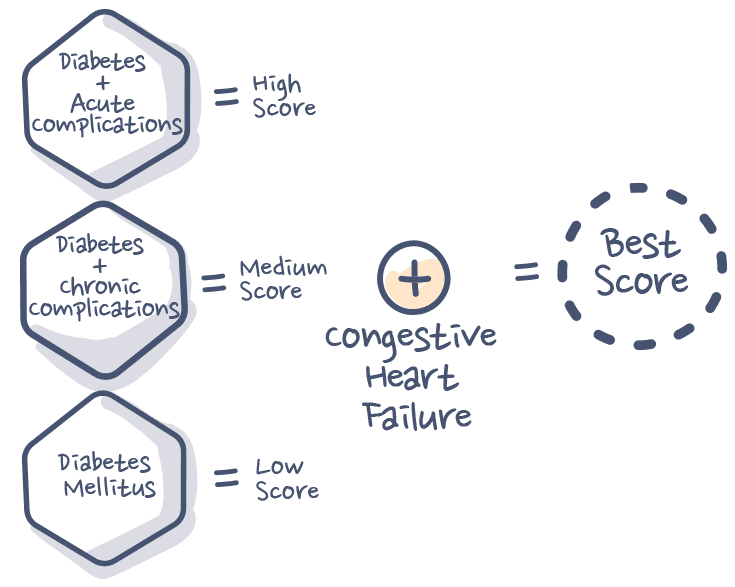Embarking on a weight loss journey can be daunting, but with the right strategies, it becomes an achievable and rewarding goal. This article explores evidence-based methods to kick start weight loss, drawing on expert opinions, scientific studies, and practical advice.
Understanding the Basics of Weight Loss
Weight loss fundamentally revolves around creating a calorie deficit, where the calories burned exceed the calories consumed. Dr. Michael Jensen, an endocrinologist at the Mayo Clinic, emphasizes, “Sustainable weight loss requires a combination of dietary changes, increased physical activity, and behavioral modifications.”
Setting Realistic Goals
One of the initial steps in weight loss is setting realistic and achievable goals. According to the Centers for Disease Control and Prevention (CDC), a healthy weight loss goal is 1-2 pounds per week. This may seem modest, but it is sustainable and less likely to result in the loss of muscle mass or other health complications.
Dietary Modifications
Emphasize Whole Foods
Transitioning to a diet rich in whole foods, such as fruits, vegetables, whole grains, lean proteins, and healthy fats, can significantly aid weight loss. These foods are nutrient-dense and provide essential vitamins and minerals while being lower in calories.
Portion Control and Mindful Eating
Portion control is crucial in managing calorie intake. Dr. Lisa Young, a nutritionist and portion control expert, advises, “Using smaller plates, eating slowly, and paying attention to hunger cues can prevent overeating.” Mindful eating practices, such as savoring each bite and avoiding distractions during meals, help individuals become more aware of their eating habits.
Exercise and Physical Activity
Incorporating Aerobic Exercise
Aerobic exercise, also known as cardio, is effective in burning calories and improving cardiovascular health. The American Heart Association recommends at least 150 minutes of moderate-intensity or 75 minutes of high-intensity aerobic exercise per week for adults. Activities like brisk walking, running, cycling, and swimming are excellent choices.
Strength Training
Strength training is equally important as it helps build muscle mass, which in turn boosts metabolism. Dr. Wayne Westcott, a fitness research director, explains, “Muscle tissue burns more calories than fat tissue, even at rest. Incorporating resistance exercises at least twice a week can enhance weight loss efforts.”
Behavioral Changes and Support System
Self-Monitoring
Keeping track of food intake and physical activity can provide valuable insights into habits and progress. Tools like food diaries, mobile apps, and wearable fitness trackers can be beneficial.
Social Support
Having a support system can significantly impact weight loss success. Dr. Gary Foster, a clinical psychologist specializing in weight management, states, “Social support from family, friends, or weight loss groups can provide motivation, accountability, and encouragement.”
Medical Interventions
For individuals struggling with obesity or those who have not succeeded with lifestyle changes alone, medical interventions may be necessary. Prescription medications and weight loss surgeries are options that should be considered under the guidance of healthcare professionals.
Prescription Medications
Medications, buy wegovy online and Mounjaro have been shown to aid in weight loss. Wegovy, a brand name for semaglutide, has been approved for chronic weight management. Clinical trials have demonstrated its efficacy in reducing body weight when combined with lifestyle interventions.
Similarly, mounjaro buy online (tirzepatide) is another medication showing promising results in weight loss. It works by mimicking the hormone GLP-1, which regulates appetite and insulin secretion.
Psychological Aspects of Weight Loss
Addressing Emotional Eating
Emotional eating, or using food to cope with emotions, is a common barrier to weight loss. Dr. Susan Albers, a psychologist specializing in eating behaviors, suggests, “Identifying triggers, finding alternative coping mechanisms, and seeking professional help when necessary can mitigate the impact of emotional eating.”
Building a Positive Relationship with Food
Developing a healthy relationship with food is essential for long-term weight management. This involves viewing food as fuel and nourishment rather than a reward or punishment.
Role of Sleep and Stress Management
Importance of Sleep
Adequate sleep is often overlooked but is critical in weight management. Studies have shown that sleep deprivation can lead to weight gain by disrupting hormonal balance and increasing appetite. The National Sleep Foundation recommends 7-9 hours of sleep per night for adults.
Managing Stress
Chronic stress can contribute to weight gain through increased cortisol levels, which promote fat storage, especially around the abdomen. Stress management techniques, such as mindfulness meditation, yoga, and deep breathing exercises, can help reduce cortisol levels and support weight loss.
Tracking Progress and Adjusting Plans
Regularly monitoring progress and adjusting plans as needed is vital for continued success. This includes reassessing goals, making dietary and exercise modifications, and celebrating milestones along the way.
Conclusion
Kickstarting weight loss involves a multifaceted approach that includes dietary changes, physical activity, behavioral modifications, medical interventions when necessary, and addressing psychological factors. By setting realistic goals and creating a supportive environment, individuals can achieve sustainable weight loss and improve their overall health.
For more information on weight loss medications and health support, visit Welzo.


